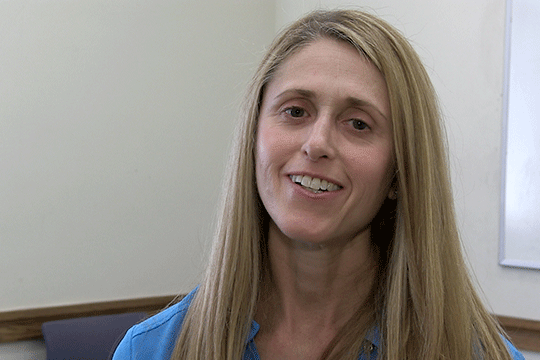Getting to Know the Score: Nancy Green Saraisky (Ph.D., Comparative and International Education and Political Science)

Life before TC
A former foreign policy staffer for the late U.S. Senator Edward M. Kennedy, Nancy Green Saraisky had a busy career in politics, media and philanthropy before deciding to earn a doctorate. A position with the Open Society Foundations, based in Budapest with travel across Eastern Europe and the former Soviet Union, plunged her into the world of education policy. “I’ve had a non-linear path,” Green Saraisky says of the journey that led her to TC, “but it all fits together.”
Why TC
Green Saraisky met Gita Steiner-Khamsi, Professor of Education and chair of the Department of International & Transcultural Studies, after both had worked on policy assignments in Mongolia. Steiner-Khamsi encouraged Green Saraisky to consider doctoral work, and would later serve as one of her thesis supervisors. Another was Oren Pizmony-Levy, Assistant Professor in International and Comparative Education, whom Green Saraisky calls “an outstanding mentor and advisor.”
TC Takeaway
Green Saraisky’s research focused on the growing use in the United States of the Program for International Student Assessment (PISA) as an achievement yardstick and its impact on U.S. education debates. Analyzing 13 years of references to PISA in American academic journals, think-tank literature and national media, she found that different players in the education policy landscape used PISA comparisons to justify their preferred reforms – on issues as varied as teacher education, the role of teachers’ unions, or standardized testing – in ways that the performance scores alone did not justify. “The PISA score is just one data point” without internal differentiation, she says. “Also, PISA is designed not to be tied to any particular curriculum” – but such context is crucial to change actual practice. She also found that discussion of PISA, regardless of which political camp was conducting it, tended to privilege elite voices in policy and government, as opposed to parents, teachers, or students. “The people closest to the schoolhouse are given the least say in the discourse,” she says.
What’s Next
Green Saraisky is hoping to teach in a school of education or public policy. She wants to continue research in directions that can have a practical impact. One, she says, is to “broaden my research sample to look at local and regional differences” in the assessment discourse, since the bulk of key decisions happen at the state level. “The role of ideas in education policy, and how ideas travel,” are questions that fascinate her and will drive her future projects.
Published Friday, May 1, 2015